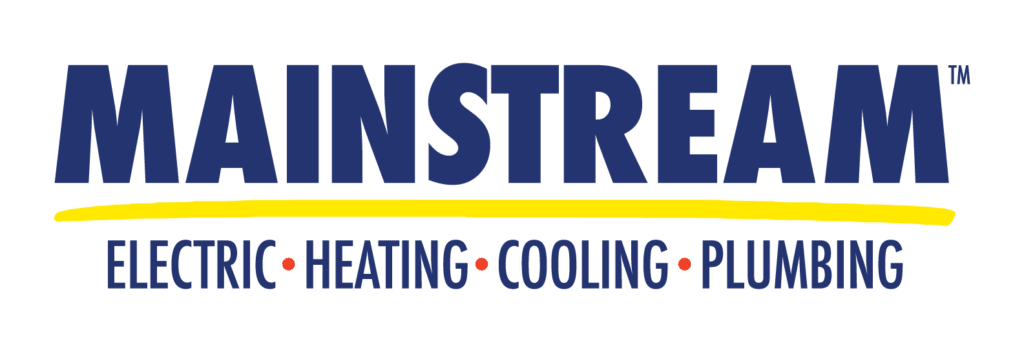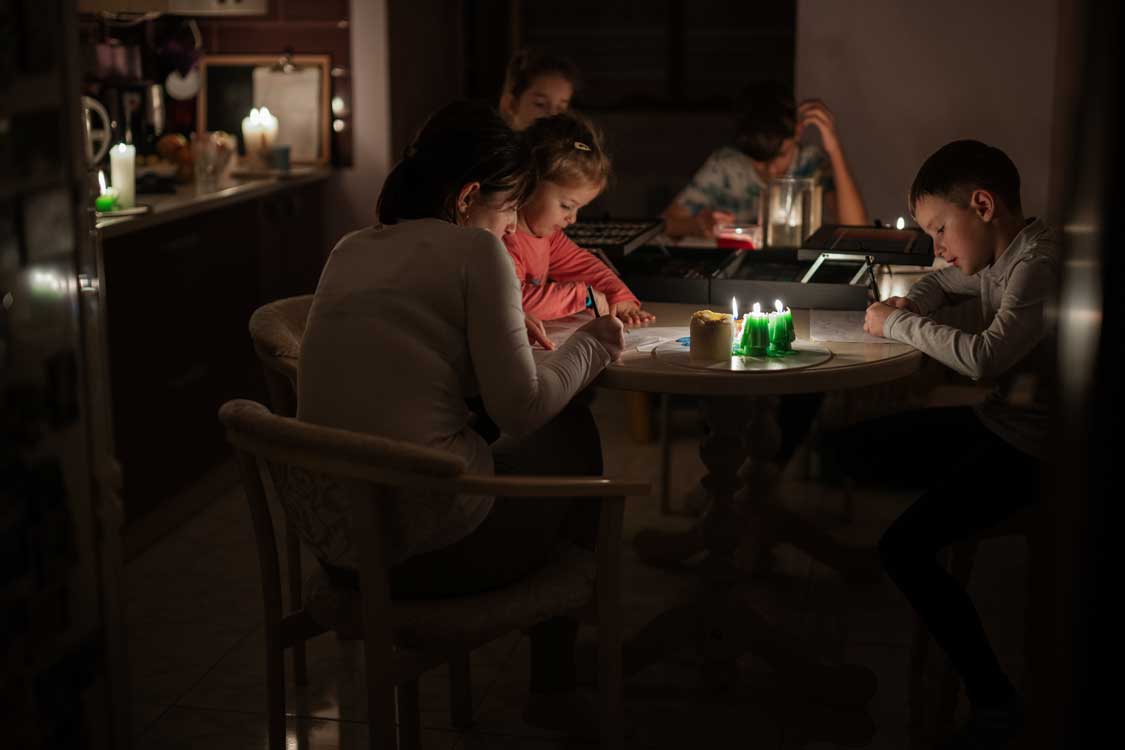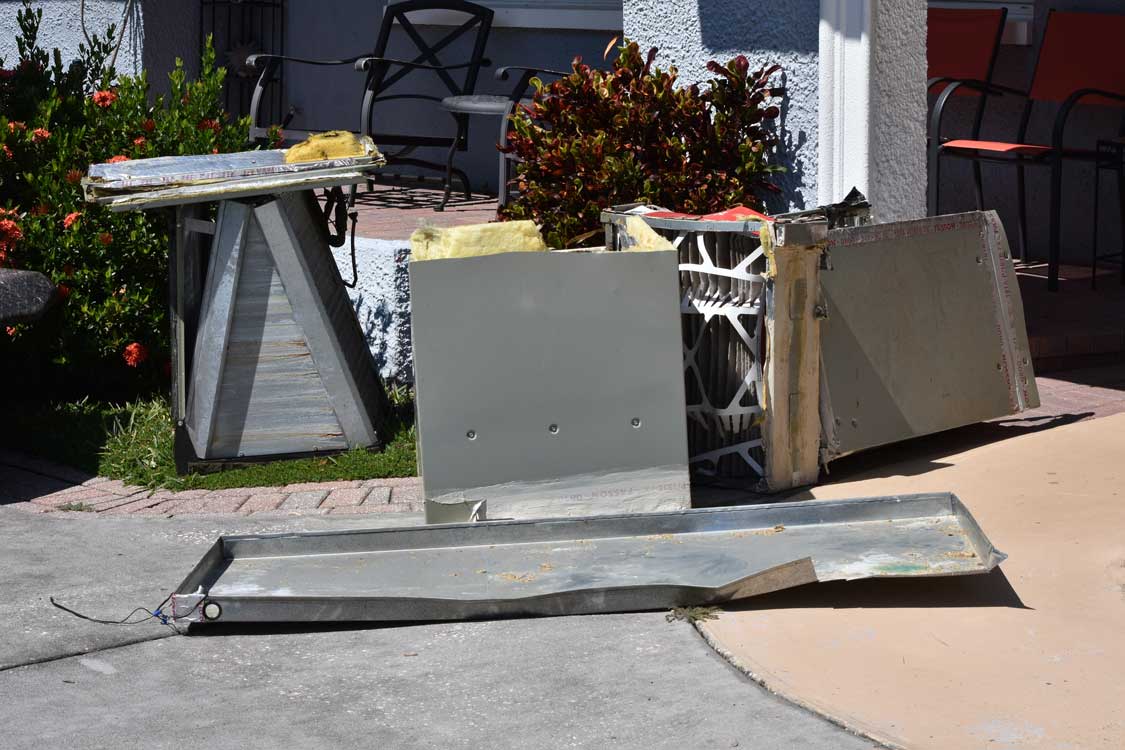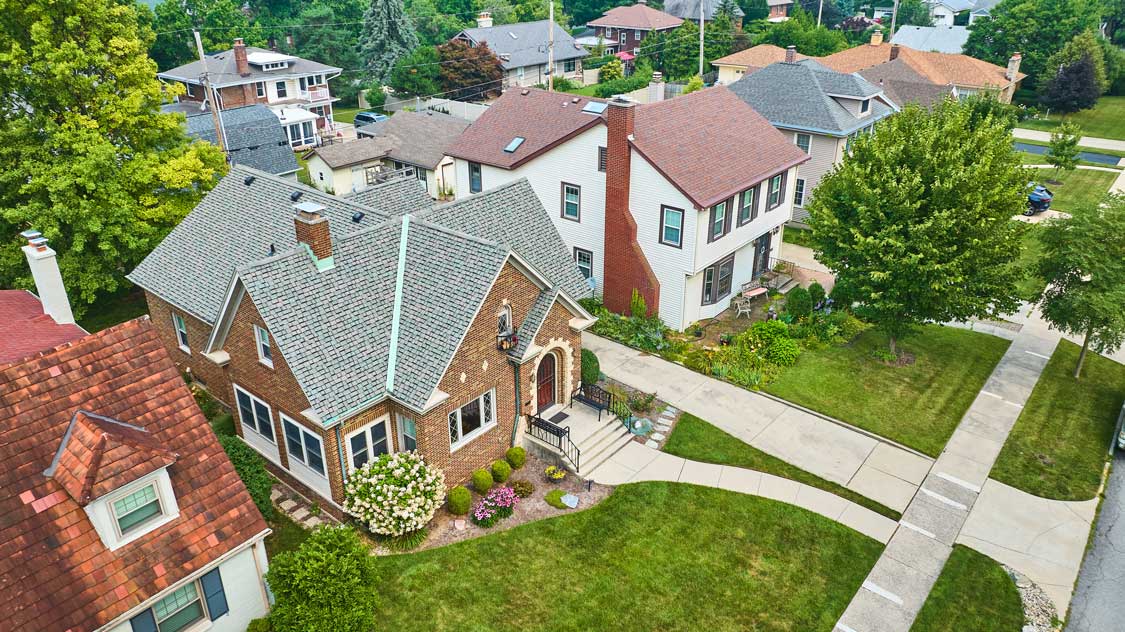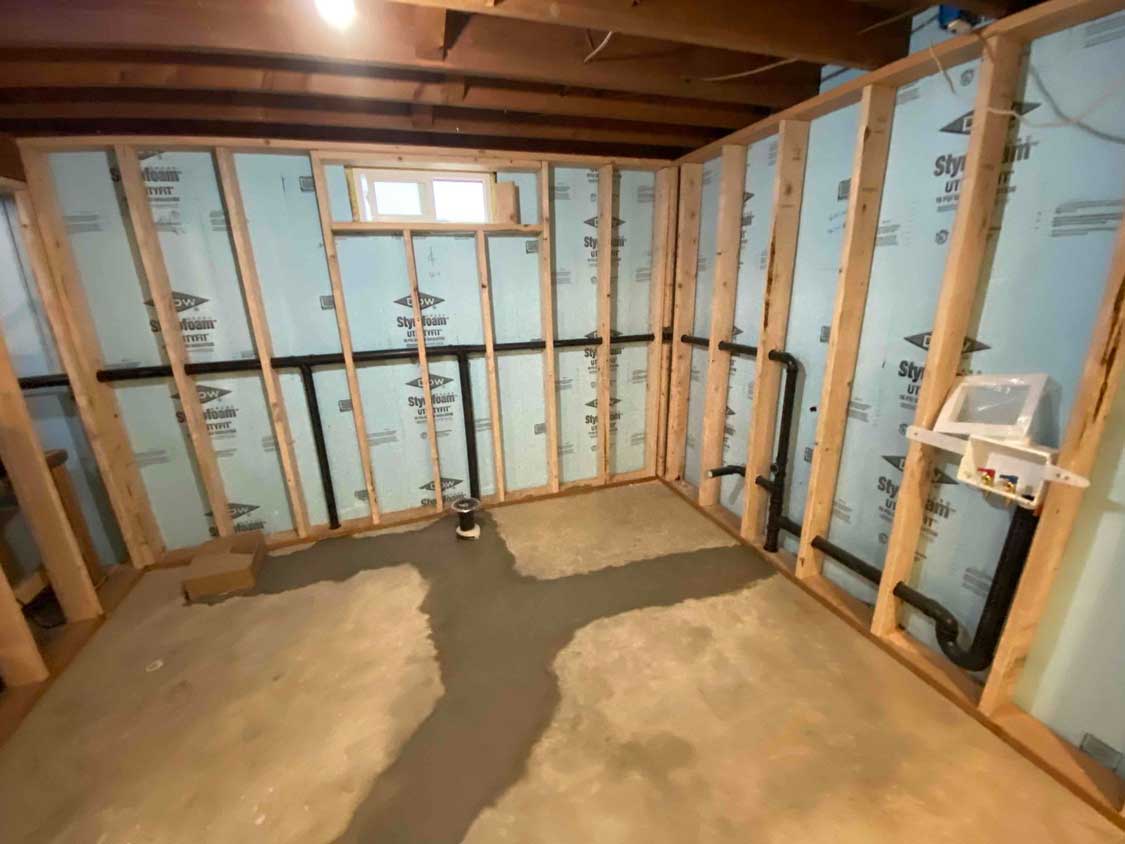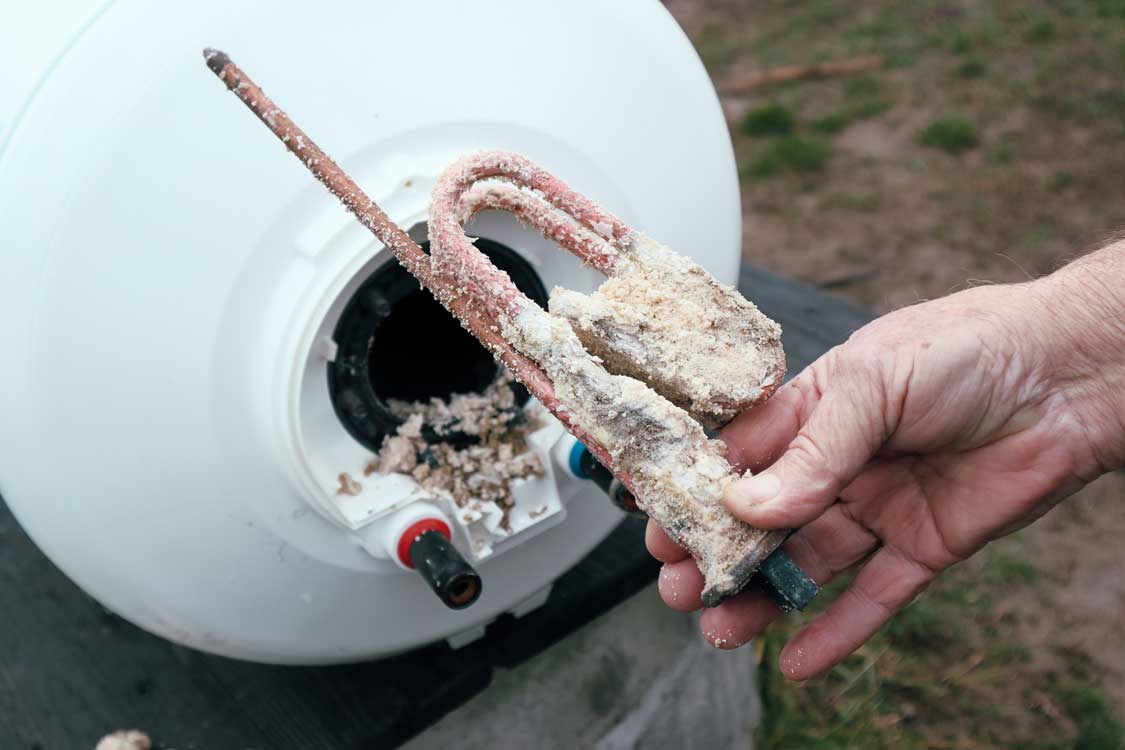Since 2000, Mainstream Electric, Heating, Cooling & Plumbing has been assisting homeowners in finding the perfect backup power solutions to suit their needs, ranging from compact portable generators to fully automatic standby systems. This guide will simplify your choices by highlighting important features, guiding you on how to choose the right size, and explaining why expert installation is key. Our goal is easy: we want to provide you with the best backup generator for your home’s use.
Consider the Best Generator for Your Home Use
Home backup power solutions fall into three main types: portable, inverter, and standby. The best generator for home backup power depends on how much you need to run, how long outages last in your area, and how hands-off you want the experience to be.
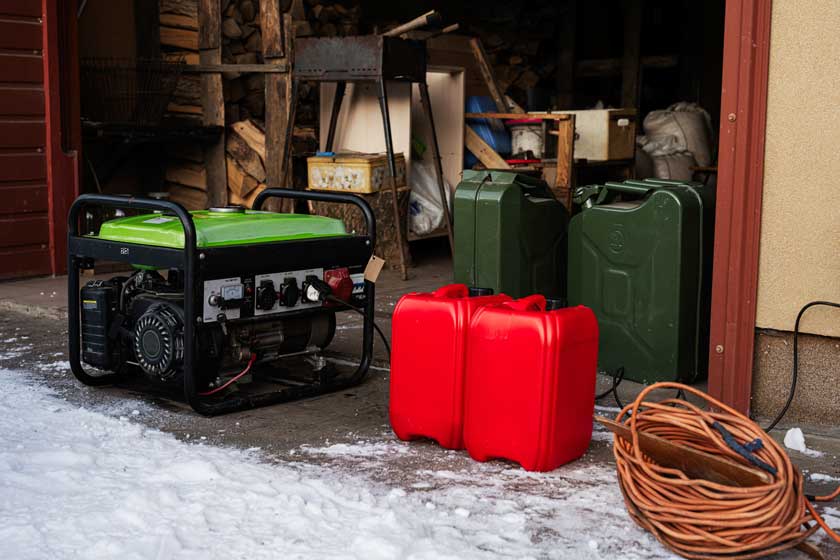
Portable generators: Portable units are movable and usually gasoline-powered. They’re a practical way to run a few essentials for short outages like a fridge, some lights, or a sump pump. You’ll need to refuel and use a safe connection method, which can mean cords or a manual transfer setup.
Best for: Short outages, a few essential circuits, occasional use.

Backup generators: Whole house generators are installed outside and connected to natural gas or propane. They start automatically when the power fails and deliver electricity to selected circuits or your whole home through a transfer switch. If you want reliability without manual steps, a standby system is often the best backup generator for home use.
Best for: Automatic operation and reliable whole-home or critical-circuit coverage without manual intervention.
Where inverter generators fit: Inverter models are a type of portable generator known for quiet operation, fuel efficiency, and clean power. They’re great for sensitive electronics like computers and networking gear. Their technology adjusts engine speed to match demand, which helps save fuel and lower noise—ideal for small household loads and occasional outdoor needs.
Best for: Quiet, efficient power for sensitive electronics and small loads.
Our recommendation: a backup, whole home generator. In Spokane, outages can hit during windstorms, heavy snow, or summer lightning. If you want hands-off operation through longer events, the best backup generator for home use is typically a standby system. It taps into an existing gas supply, starts automatically, and keeps priority circuits online while you stay safe and informed.
Compare the Features of Different Types of Backup Generators
When picking a standby generator, look for features that boost safety, work well, and make life easier. These are the things that turn a regular generator into the best standby choice.
Power That Fits Your Needs: Our standby generators are built to give you the right amount of power, keeping your important appliances and systems running smoothly. Whether you need power for your whole house or just for important things like heating, cooling, fridge, medical equipment, and internet, we customize our setups to meet your needs.
Save Fuel and Keep Running Long: Standby generators hooked up to natural gas or the right size propane tank can keep going for a long time. This is super important during long power outages due to bad weather or power company issues, so your home stays powered up without needing to refuel often.
Better Safety and Less Noise: Our standby systems come with smart power management and switches that meet safety rules, making sure they run safely and stay separate from the main power during outages. The special covers keep the noise down, so things stay calm for you and your neighbors.
Essential Features:
- Automatic activation during power outages
- Smart load management to prioritize essential circuits
- Durable, weather-resistant enclosures for outdoor installation
- Remote monitoring capabilities for easy status updates
- UL-listed transfer switches for enhanced safety and compliance
- Robust warranties supported by responsive service teams
By choosing our standby generators, you’ll secure reliable backup power tailored to your needs, ensuring efficient operation without unnecessary noise or fuel consumption. Our systems are designed to work effortlessly in the background, ready to activate whenever you need them.
Determine How Much Power Your Home Needs
When you’re picking out a backup generator, it’s important to make sure it can keep things running when the power goes out, while also sticking to your budget. Start by learning the basics, like the key difference between running watts and starting watts. This will help you choose the right standby generator for your home, giving you comfort and reliability when you need it the most.
Assessing your power requirements: List the appliances and systems you need operational during a power cut. Critical items include the refrigerator or freezer, heating system, water pump, lighting, internet, and medical devices. Note the running watts for each, and determine the highest starting watts for devices like refrigerators and pumps. This will guide you in selecting the most suitable backup generator.
Running vs. starting watts: Running watts indicate the power required for continuous operation. Starting watts are higher, as appliances with motors demand more power initially. For instance, a refrigerator may need 600-800 watts to operate but 1,200-1,600 watts to start. Standby generators are adept at managing these power spikes, ensuring essential appliances remain functional.
Future-proofing your power supply: Consider future needs such as a home office, electric vehicle charging, or upgraded HVAC systems. A generator with additional capacity can accommodate these changes, ensuring longevity and reliability.
Generator sizing guide:
- Essential devices only: 7.5–12 kW, based on heating and pumps
- Medium-sized homes with central air: 16–22 kW
- Larger or all-electric homes: 22–26 kW+ with load management
- Portable inverter for small gadgets: 2–3 kW
Factor in the Fuel Costs for Your Backup Generator
Your fuel source affects runtime, maintenance, and readiness during long outages. In our region, your existing utilities and installation site usually decide what makes the best backup power for home conditions.
Natural gas: If your neighborhood has gas service, this is often the most convenient option. It allows a standby generator to run for extended periods without refueling and works seamlessly with automatic start systems. Proper gas line sizing and regulator selection are crucial to stable performance.
Propane: A great choice for homes without natural gas. With a correctly sized tank, you get multi-day runtime and excellent storage stability. Safe tank placement, line sizing, and compliant connections are key parts of installation.
Gasoline (portable and inverter): Readily available and practical for short outages but requires careful storage and refueling. Choose models with CO sensors and automatic shutoff, and always run portables outdoors away from doors, windows, and vents.
Tip: Whether you choose natural gas or propane for the best generator for home backup power, routine maintenance and periodic testing keep the system ready year-round. Mainstream offers maintenance plans so your setup is prepared before the next storm rolls through.
Frequently Asked Questions
Is a standby generator worth it? If you’re looking for a generator that automatically starts during an outage, causes minimal disruption, and offers reliable operation for several days, then it is indeed a valuable investment. Standby generators are particularly advantageous for homeowners who prioritize convenience and peace of mind during power outages. They provide a seamless transition from grid power to backup power, ensuring that your home continues to run smoothly.
How loud are these systems? Inverter generators are renowned for their quiet operation, often making them a popular choice for those concerned about noise. Modern standby generators are designed with sound-dampening enclosures that significantly reduce noise levels. Additionally, strategic placement of the unit can further minimize any potential noise disturbance in residential neighborhoods.
Will it power my HVAC? When appropriately sized and managed, most standby generators can adequately support central air systems, heat pumps, or furnace blowers. It’s crucial to have a professional conduct a load calculation to ensure that the generator can handle your home’s energy demands. This ensures that your HVAC system runs efficiently during power outages, maintaining comfort in your home.
How long will it run? Standby generators powered by natural gas can function indefinitely as long as there is an uninterrupted gas supply. For propane-powered units, the runtime is contingent on the size of the propane tank. Portable gasoline generators, on the other hand, have limited run times dictated by fuel tank capacity and how frequently you can refuel them.
Do I need permits? Yes, obtaining the necessary electrical and gas permits is essential for installation. Companies often manage the permitting and inspection process to ensure that your generator installation adheres to local building codes and safety standards. This helps in preventing any legal or safety issues in the future.
What’s the best backup power for home if I only need a few essentials? For powering a small number of essential devices, a well-selected portable or inverter generator may suffice. However, if you prefer automatic operation, a seamless transition during outages, and extended runtime, a standby generator is generally considered the most reliable option for home use. It offers a more comprehensive solution for continuous power needs.
Get the Best Backup Home Generator Installers in Spokane
Curious about finding the perfect backup generator for your home? Let’s work together to come up with a reliable plan. Reach out to Mainstream Electric, Heating, Cooling & Plumbing for an easy, no-pressure quote. We’ll take a look at what you need, go over your choices in simple language, and give you clear pricing details—helping you make a smart choice to keep your home powered up during any blackout.
You can count on Mainstream for Solutions, Not Surprises.
